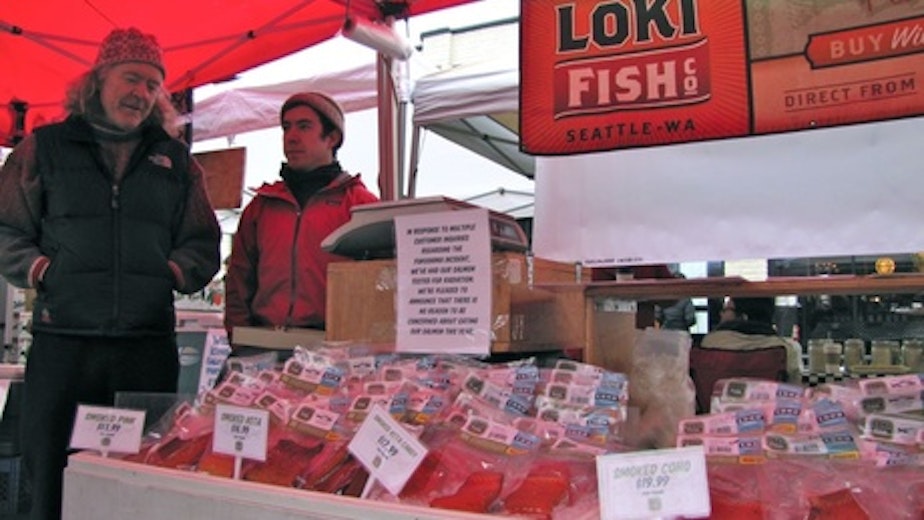Scientists: Stop Worrying About Fukushima Radioactivity In Fish

Following the 2011 tsunami in Japan, a nuclear reactor released hundreds of millions of gallons of radioactive water into the ocean. That sparked fear that contaminated water would reach the West Coast, but three years later, scientists say that radiation in our waters isn’t necessarily linked to the nuclear reactor.
“This is one of the problems,” said Kim Martini, an oceanographer at the University of Washington who has followed the issue closely. A Geiger counter can reveal the presence of radiation, she said, “but it can’t differentiate between different kinds of radiation.”
Martini and other scientists have received hate mail for trying to dispel fears spread online about radioactive pollution resulting from the meltdown of Japan’s Fukushima Daichi Nuclear Power Station.
“There are definitely people that you’re never going to convince,” Martini said. “I don’t know what to tell you. The science says it’s OK.”
Although fisheries in Japan remain closed because of high levels of radioactivity and the ongoing release of contaminated groundwater from the nuclear site, the U.S. Food and Drug Administration, Washington Department of Health and Woods Hole Oceanographic Institute have stressed that levels of radioactivity in fish that have made their way across the Pacific have not reached concerning levels.
Sponsored
California state officials also tested the beach and found the radiation to be naturally occurring in rock formations. And scientists in California and Oregon have collected samples of tuna, a fish known to migrate back and forth across the Pacific, and analyzed them for radioactive isotopes, Cesium-134 in particular, from Fukushima.
Delvan Neville, a Ph.D candidate in Radiation Health Physics at Oregon State University, has tested dozens of samples of albacore tuna for radioactivity. Neville found that the highest levels are 1,000 times lower than what the FDA “would even think about whether they need to let people eat that food still.”
Neville joked that he ate tuna he caught alongside the samples he collected.
“I was telling people as we were eating at the table what their approximate dose was due to Fukushima from the food they were eating, and it’s this ridiculously small number,” he said.
Radioactive material from Fukushima has traveled across the Pacific Ocean and reached the West Coast in small amounts. The largest concentration of radioactive water released during the nuclear meltdown is moving in a plume across the middle of the Pacific, but models project that most of the radioactive water will sink or be pushed west again before it hits the U.S.
Sponsored
Scientists debate how high those radioactivity levels could be.
“It’s about 20,000 times less than drinking water standards,” Martini said. “And so what we like to say is it’s detectable but harmless.”
Despite what scientists say, some fish consumers on the West Coast have been wary.
Pete Knutson has fished salmon in Alaska for more than 40 years. He owns and operates Loki Fish Company with his two sons. On weekends, he sells fish at farmers markets around Seattle.
“We have all different kinds of salmon products, pickled salmon, ikura, smoked salmon, canned salmon, whole pink salmon over there,” Knutson said, gesturing to rows of neatly packaged pink salmon meat.
Sponsored
After the Fukushima disaster, customers asked about the safety of his product.
So Knutson sent seven salmon samples to an internationally certified lab to test for radioactive isotopes. Five of the seven samples came back without any detectable levels of radioactive isotopes from Fukushima, Knutson said, and two showed levels several hundred times below approved levels.
“We feel very good about the results,” he said.
The tests cost $1,200, which Knutson called a necessary investment.
“People do not trust governmental authorities. They don’t trust corporations,” Knutson said. “They don’t trust explanations, and they don’t have a good science background.”
